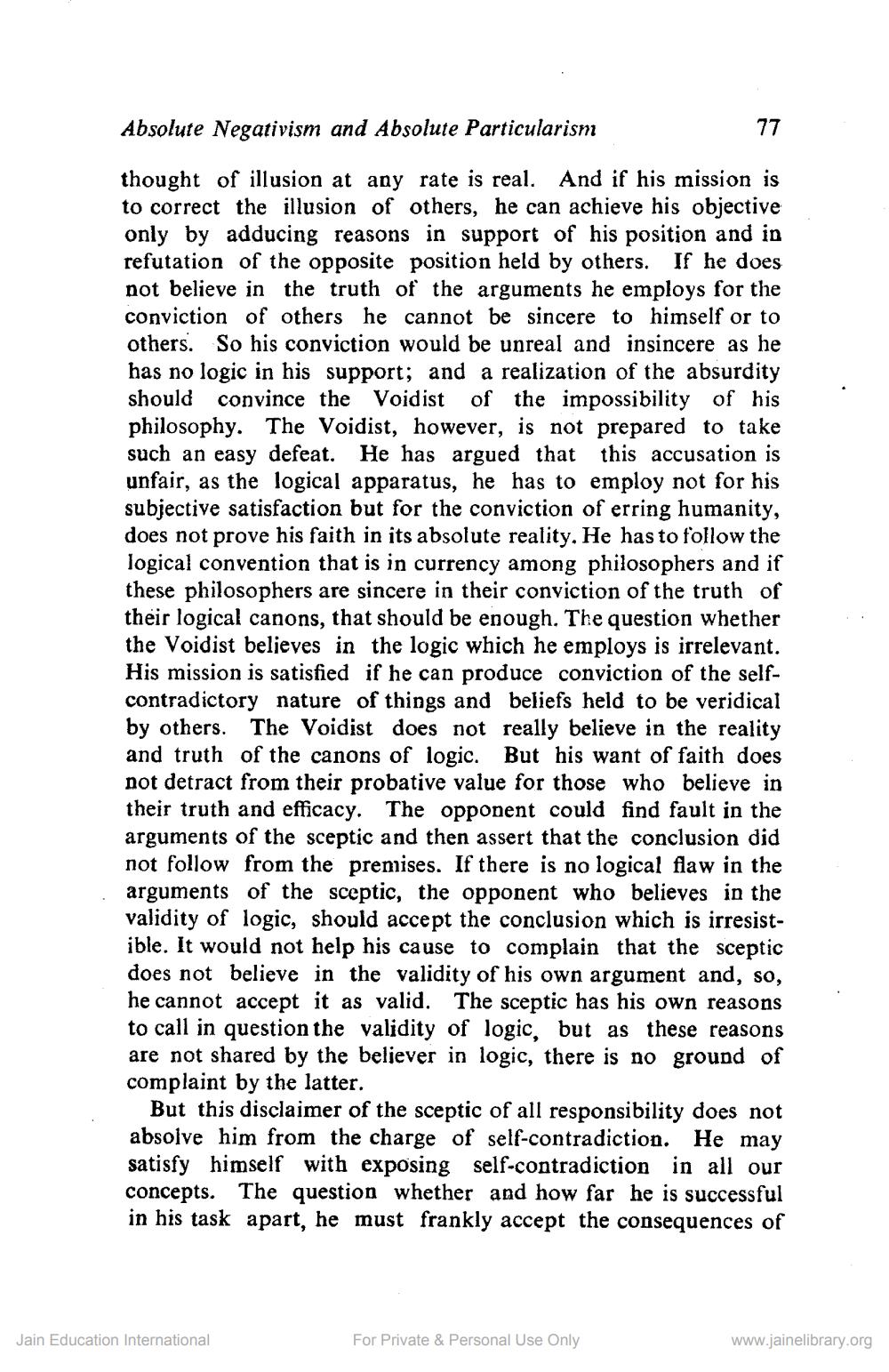________________
Absolute Negativism and Absolute Particularism
thought of illusion at any rate is real. And if his mission is to correct the illusion of others, he can achieve his objective only by adducing reasons in support of his position and in refutation of the opposite position held by others. If he does not believe in the truth of the arguments he employs for the conviction of others he cannot be sincere to himself or to others. So his conviction would be unreal and insincere as he has no logic in his support; and a realization of the absurdity should convince the Voidist of the impossibility of his philosophy. The Voidist, however, is not prepared to take such an easy defeat. He has argued that this accusation is unfair, as the logical apparatus, he has to employ not for his subjective satisfaction but for the conviction of erring humanity, does not prove his faith in its absolute reality. He has to follow the logical convention that is in currency among philosophers and if these philosophers are sincere in their conviction of the truth of their logical canons, that should be enough. The question whether the Voidist believes in the logic which he employs is irrelevant. His mission is satisfied if he can produce conviction of the selfcontradictory nature of things and beliefs held to be veridical by others. The Voidist does not really believe in the reality and truth of the canons of logic. But his want of faith does not detract from their probative value for those who believe in their truth and efficacy. The opponent could find fault in the arguments of the sceptic and then assert that the conclusion did not follow from the premises. If there is no logical flaw in the arguments of the sceptic, the opponent who believes in the validity of logic, should accept the conclusion which is irresistible. It would not help his cause to complain that the sceptic does not believe in the validity of his own argument and, so, he cannot accept it as valid. The sceptic has his own reasons to call in question the validity of logic, but as these reasons are not shared by the believer in logic, there is no ground of complaint by the latter.
But this disclaimer of the sceptic of all responsibility does not absolve him from the charge of self-contradiction. He may satisfy himself with exposing self-contradiction in all our concepts. The question whether and how far he is successful in his task apart, he must frankly accept the consequences of
Jain Education International
For Private & Personal Use Only
77
www.jainelibrary.org




